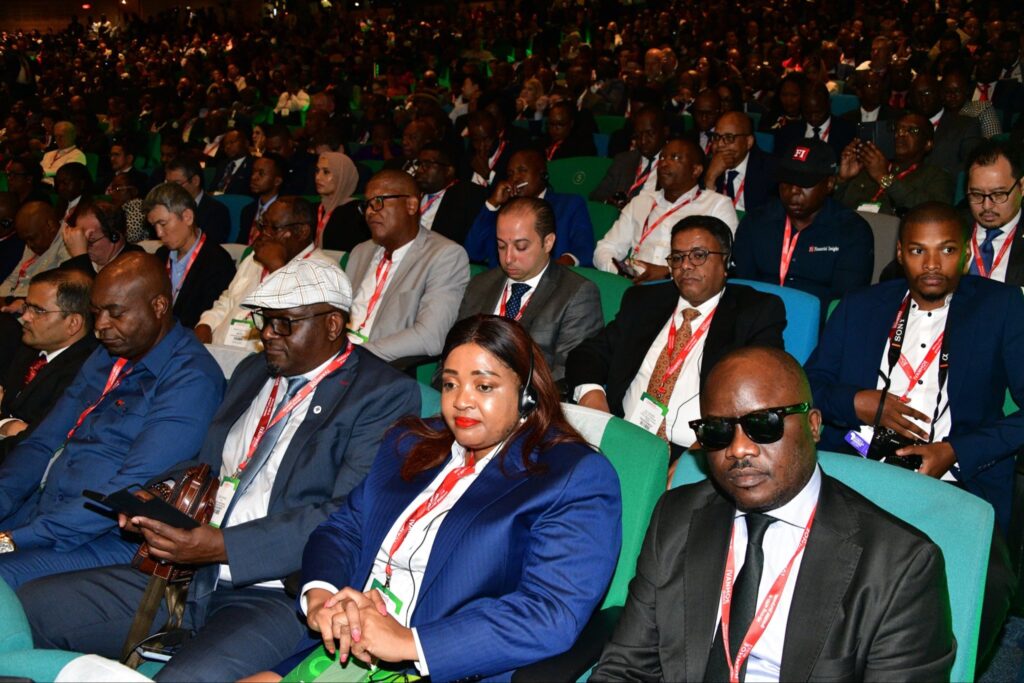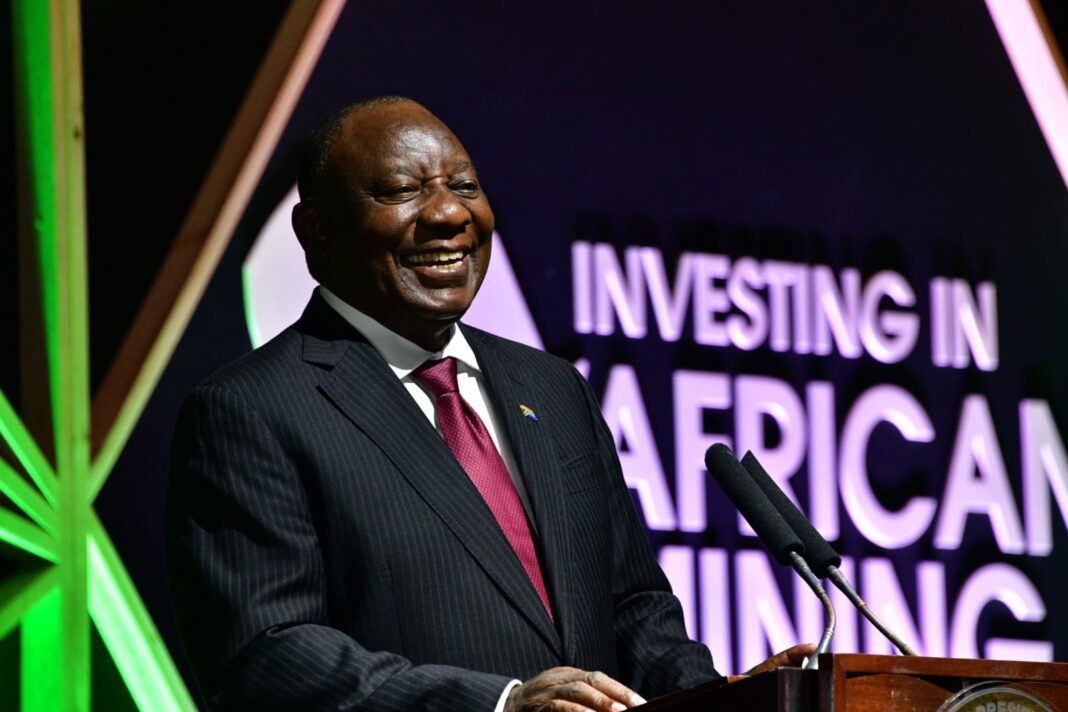Lerato Mbhiza
President Cyril Ramaphosa has unveiled the plan for the future of the mining industry in South Africa at the 2024 Investing in African Mining Indaba being held at the Cape Town International Convention Centre, Cape Town
The Investing in African Mining Indaba 2024 kicked off from Monday and its aim is to attract investments to the mineral rich African continent.
The Business Dialogue is held under the theme: “Growing Investments in the South African Mining Industry & Repositioning South Africa as a Global Destination for Critical Minerals”.

In his speech Ramaphosa said in the last three decades, South Africa’s mining industry has undergone significant transformation. For nearly 150 years, mining has been a pillar of the South African economy. It currently contributes roughly 7.5% to GDP and accounts for some 60% of South African exports by value, he said.
“Working with industry and labour, the democratic government has been able to effect a wide-ranging and sustainable transformation of the sector over the past three decades,” he said.
Statistics show that In 2004, the year the Mining Charter was first introduced, black ownership in the industry stood at some 2%. Today, this stands at approximately 39%, he said.
“We are all acutely aware that we face strong headwinds, and several persistent challenges are impeding mining performance. Globally, commodity price volatility, high energy prices, geopolitical tensions, and a global cost of living crisis are playing a significant role in dampening the business operating environment.
“Domestically, the energy crisis and port and rail bottlenecks are putting serious pressure on miners’ operational costs. Illicit mining, cable theft, and infrastructure vandalism place further strain on mining output and returns.
“We are committed to working hard and working together to overcome these serious challenges. Last year, we outlined four objectives to develop the sector, improve its global competitiveness, and harness the global drive towards sustainable development,” he said.
In the outline of the government objectives, the president highlighted the safe provision of power, the economic reforms to provide a congenial business environment, the fight against illegal mining, and infrastructure development.
“The first objective is to ensure a reliable source of power. Several key steps have been taken in the Electricity Action Plan to improve the operation of our current generation fleet and increase new power generation capacity.
“The Department of Mineral Resources and Energy has secured 1 384 MW of new generation capacity that is currently under construction or already in operation. The department has released requests for proposals for the procurement of 5 000 MW of renewable energy under Bid Window 7, 2 000 MW of gas-to-power, and 615 MW of battery storage. Transmission capacity remains a challenge, especially in the Cape Provinces,” noted Ramaphosa.
“Eskom has therefore recently published a curtailment regime that unlocks 3 470 MW of additional capacity in these provinces and will be essential to the success of Bid Window 7.
“The second objective we identified was to accelerate economic reforms to improve the operating environment. We have instituted a few reforms to enable businesses to operate optimally.”
Ramaphosa added that since the removal of the licensing threshold for embedded generation, the National Energy Regulator of South Africa has registered no less than 1 312 generation facilities with a combined capacity of over 6 300 MW. Around a third of this capacity supplies the mining load.
“It is encouraging that more and more mining companies, including Gold Fields, Anglo American, Seriti, and Exxaro, are beginning to take advantage of these reforms to power their mining operations and curtail their operational costs.
“The third objective we identified was to tackle illegal mining and damage to infrastructure. Since the establishment of a specialised police unit working with the defence force, we have seen several arrests, prosecutions, and convictions of the perpetrators of this crime. The DRME, through Mintek, continues to seal ownerless and derelict mines”.
Deputy President Paul Mashatile will tomorrow deliver a keynote address at the South African Youth Economic Council (SAYEC) Business Dialogue on the margins of the Mining Indaba in Cape Town.
INSIDE POLITICS

